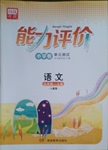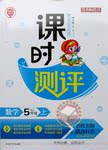题目内容
16.The 1980s was called the"Me Decade"because for many this time was marked by a fascination with the self.The idea that each person has a self may seem natuaral to us,but this concept is actually quite new.The idea that each human life is unique developed between the 11th and 15th centuries in Europe.Before that time,individuals were considered in relation to a group,and even today,many eastern cultures place more emphasis on the importance of a collective self than on a unique and independent self.Both eastern and western cultures see the self as divided into an inner,private self and an outer,public self.But where they differ is in terms of which part is seen as the"real you."Western culture tends to promote the idea of individuality-a self that is separated from other selves.In contrast,many eastern cultures focus on an inter-independent self that gets its diversity in large part from inter-relationship with others.
For example,a Confucian(孔子) idea stresses the importance of"face"-other people's views of the self and maintaining one's desired status in their eyes.In the past,some Asian cultures developed clear rules about the specific clothes and even colors that people in certain social classes and occupations were allowed to display,and these live on today in Japanese style manuals.This style of dress is at odds with such western practices as"casual Fridays,"which encourage employees to dress informally and express their unique selves.
57.Which is true about the self according to the text?A.
A.Many eastern cultures see the self connected with others.
B.Those born in the 1980s are generally most self-centered than others.
C.The concept that eac person has a self may seem strange to eastern cultures
D.Western cultures regard the self as an outer,public self while eastern cultures don't.
58.What does the 2nd paragraph mainly talk about?A.
A.How eastern and western cultures see the self.
B.Eastern cultures contrast sharply with western cultures
C.Both eastern and western cultures appreciate the importance of self
D.Eastern cultures are as important as western cultures
59.A Japanese dress code is mentioned in the last paragraph toD.
A.explain the importance of"face"
B.say how traditional the Japanese are
C.emphasize the importance of eastern cultures
D.show how eastern cultures see the self in relation to others
60.The underlined phrase"at odds with"most probably meansB.
A.in agreement with B.in disagreement with
C.in comparison with D.in need of.
分析 文章讲述了"自我"的含义.二十世纪八十年度被成为"我的十年",原因是每个人都注重自我.对于这一点,东西方文化有不同的含义,西方文化侧重个性,而东方文化强调的是自我要和群体联系起来,没有单个的游离于群体之外的个体.
解答 答案:57.A 细节判断题.由第一段的最后一句以及第二段的最后一句可判断A项正确.文章第一段中讲的是八十年代的人而不是在八十年代出生的人,所以B项错误;C项中的信息"strange"与文章第一段第二句话中的"…may seem natural to us"不符;由第二段的第一句可知D项错误.故选A.
58.A 段落大意题.第二段Western culture tends to promote the idea of individuality-a self that is separated from other selves.In contrast,many eastern cultures focus on an inter-independent self that gets its diversity in large part from inter-relationship with others主要讲东西方在对待"自我"方面的共同观点及不同看法.故A项概括得最准确.故选A.
59.D 推理判断题.第三段开始的信息词For example表明该段内容是举例(日本人的穿衣准则)阐述上段的一个观点,即many Eastern cultures focus on an interdependent self that gets its identity in large part from interrelationships with others,所以D项正确.故选D.
60.B 猜测词意题.at odds with意见不一致,有分歧.文章最后一句讲which encourage employees to dress informally and express their unique selves日本的穿着与西方鼓励员工在星期五穿非正式的衣服来表达独特自我的方式有差异.故选B.
点评 阅读理解是考查语篇理解能力.常考的题型有:推理判断题;主旨大意题;细节理解题;猜测词意题.近几年又出现了两种新的考查方式:写作态度判断题和文章结构题.解题时,在读懂文章的基础上,还有特别注意掌握题型的特征,尤其是细节题和推断题不可混淆:细节题是文章信息的再现;推断题是文章信息的提取.本题是广告类文章,考查主要是以细节题为主,细节题要注意常用的出题陷阱有:夸大,缩小,张冠李戴,偷梁换柱,无中生有等,做题时要看清看准.

 能力评价系列答案
能力评价系列答案 唐印文化课时测评系列答案
唐印文化课时测评系列答案Since I started going there,1was (45)B by the other kids because of my hearing aid and the way I (46)C.I experienced great anxiety throughout the school.In addition to the problems of (47)B with the other students,1als0 (48)C with most of my school work.The teachers didn't show much interest in any of my rare achievements. (49)D Mrs.Jordan,my 5th grade teacher,changed all of that with a (50)A three-word phrase.One morning,she asked the class a question.1 (51)D her lips and immediately raised my hand.l couldn't believe it-for once I knew the answer.I took a deep breath and (52)Canswered her question.
1will never forget what happened next.Her response (53)A a11 0f us.Mrs.Jordan enthusiastically turned her (54)B in a full circle until it pointed directly at me.With sparkling eyes and a (55)Bsmile she cried,"THAT'S RIGHT STEPHEN!"
For the first time in my young life,1was an instant star.My heart (56)A with Pride,I sat a little (57)Cin my chair and my confidence increased like (58)B before.A simple three-word phrase totally (59)D my young life."THAT'S RIGHT STEPHEN!"From then on,my grades improved dramatically.My popularity among my peers increased and my outlook on life did a complete (60)D.
| 41.A.dealing | B.experimenting | C.consulting | D.comparing |
| 42.A.decision | B.survey | C.mistake | D.comment |
| 43.A.blind | B.deaf | C.rich | D.young |
| 44.A.friends | B.relatives | C.patients | D.schoolmates |
| 45.A.cared for | B.laughed at | C.called up | D.spoken of |
| 46.A.learned | B.walked | C.talked | D.hoped |
| 47.A.coming up | B.fitting in | C.putting up | D.keeping up |
| 48.A.disagreed | B.quarreled | C.struggled | D.improved |
| 49.A.Even | B.Or | C.So | D.But |
| 50.A.simple | B.regular | C.strange | D.modest |
| 51.A.opened | B.touched | C.moved | D.read |
| 52.A.fortunately | B.suddenly | C.nervously | D.naturally |
| 53.A.surprised | B.delighted | C.confused | D.frightened |
| 54.A.leg | B.finger | C.ear | D.nail |
| 55.A.slight | B.wide | C.false | D.faint |
| 56.A.burst | B.broke | C.filled | D.hit |
| 57.A.quieter | B.deeper | C.taller | D.lighter |
| 58.A.ever | B.never | C.past | D.some |
| 59.A.reflected | B.discovered | C.introduced | D.transformed |
| 60.A.attempt | B.delay | C.battle | D.turnabout |
| A. | determining | B. | determined | ||
| C. | determine | D. | being determined |
| A. | untouched | B. | untouch | C. | untouching | D. | to untouch |
| A. | compared | B. | being compared | C. | comparing | D. | having compared |